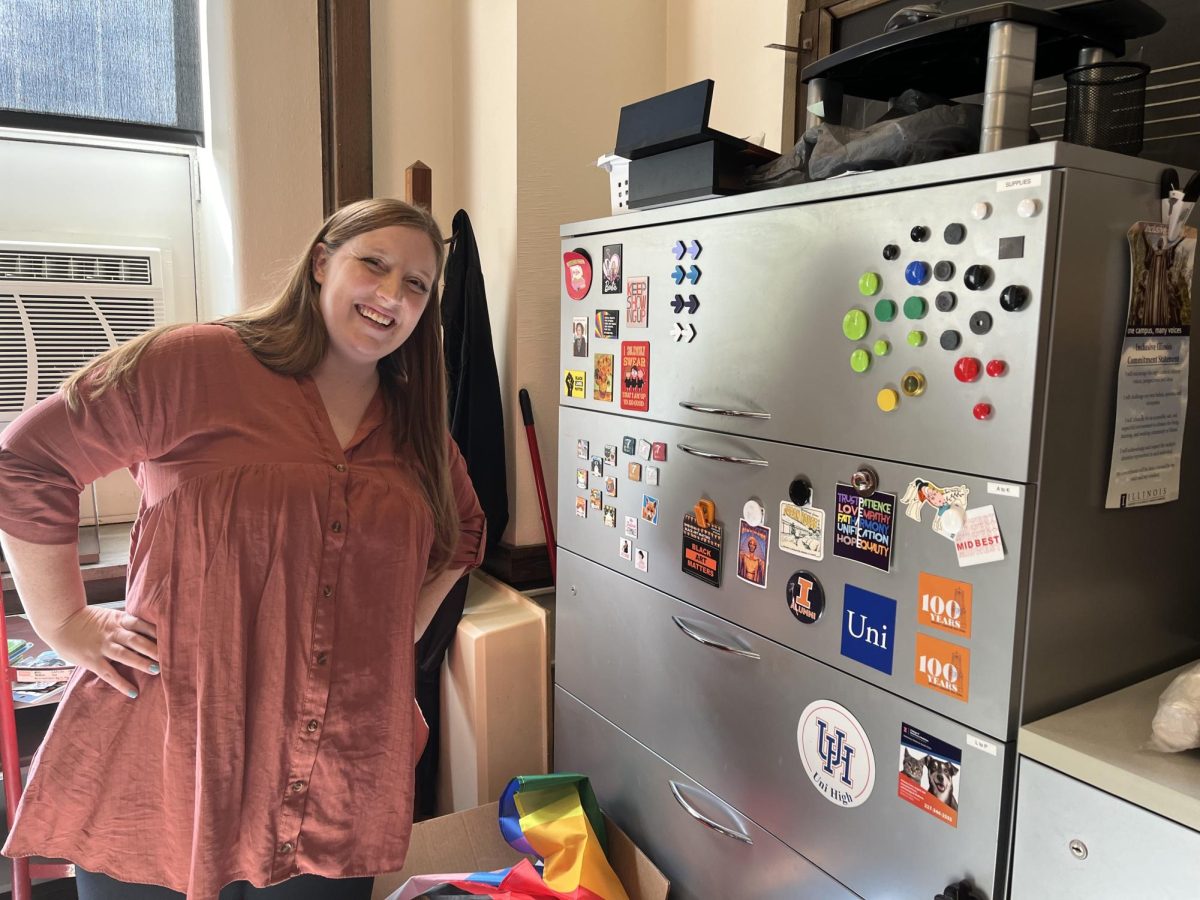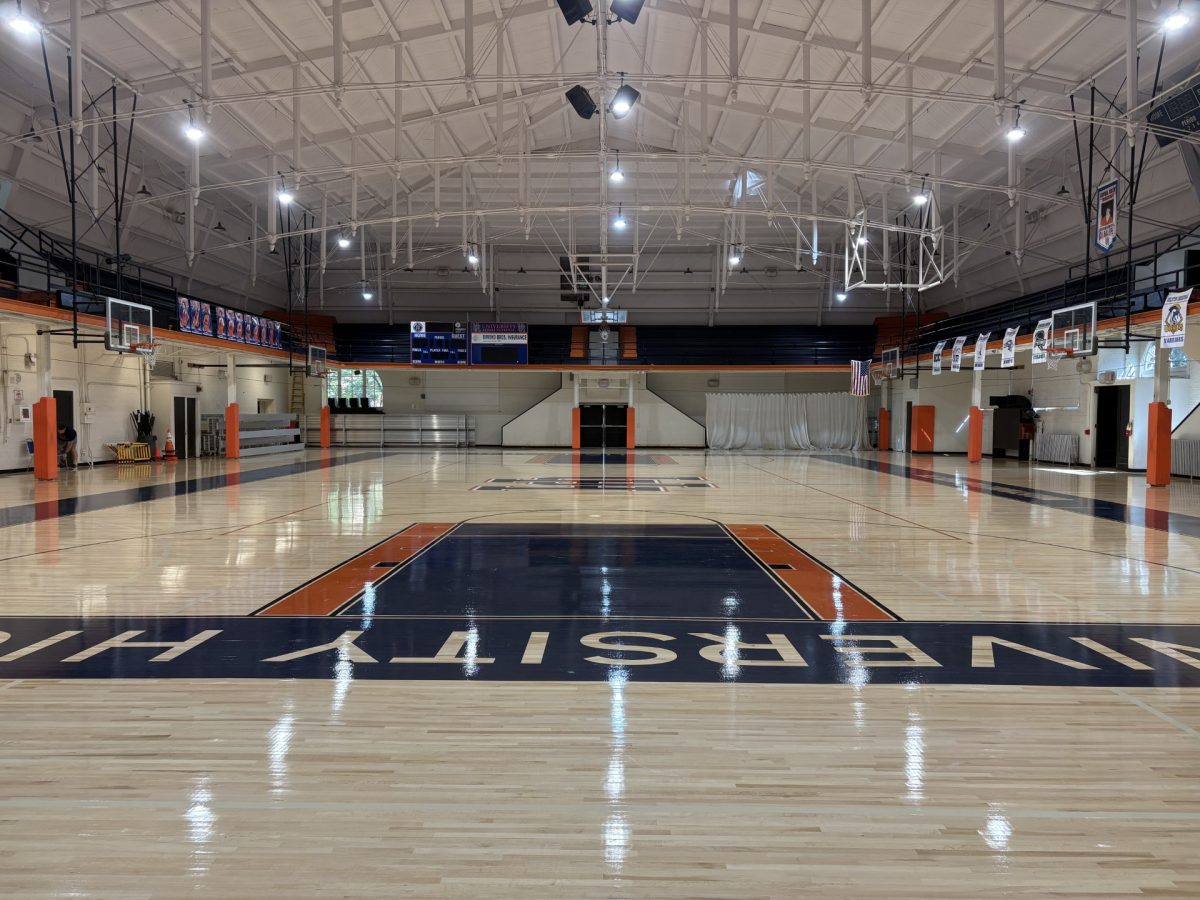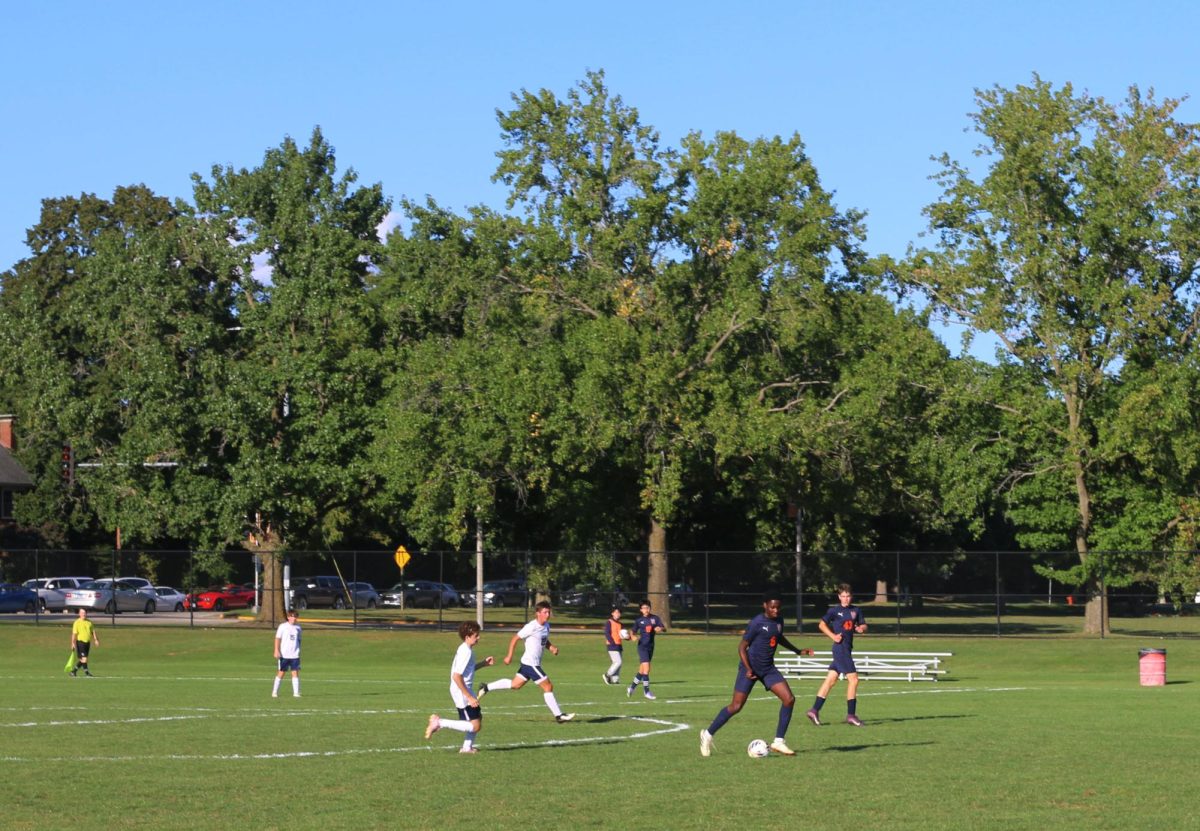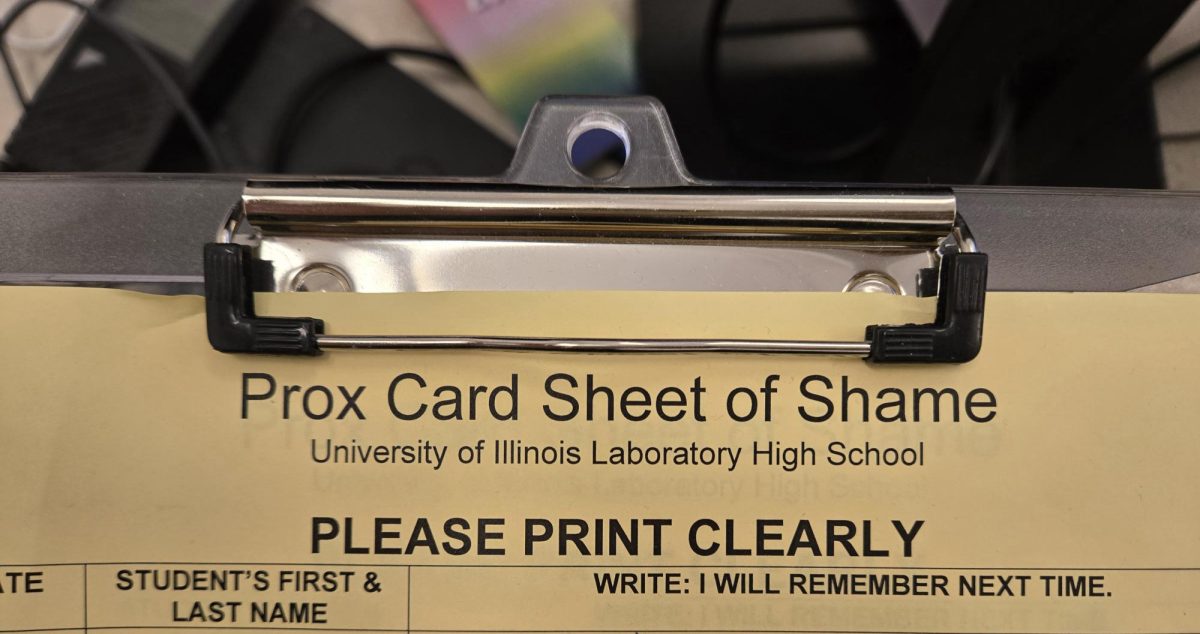Uni recently hired a new Assistant Director of Student Life, Bridget Hughes, after longtime Associate Director Karl Radnitzer retired earlier this year. Ahead of the first day of school, Hughes reflects on her first month at Uni so far.
Q. What led you to Uni?
A. I knew about [Uni] for a really long time. I’ve had students who have come here in the past, and so I’ve always wanted to keep up with what they were doing and what the school is like. I really found I liked the structure of it, I liked how the students seemed excited to learn, and the opportunities were amazing here, especially for a small school. So it’s been in the back of my mind for many, many years, and when the opportunity arose and I saw the job posting, I took a chance.
Q. Can you give me a tour of your office?
A. I want people to be able to communicate and feel comfortable. I have my desk area where I do paperwork. I have my table space and I want that to be open, for people to come in and be able to work with me. This is one of my favorite spots — my fidget chairs. You’re gonna come in if you need a comfy place to sit and someone to talk to. I also brought books from my teaching, because my past teaching is really important to me. I also have creative materials here, crayons, markers, pencils. I like to have things that remind me of things I care about and people I care about. For a while, my title was “Magnet Coordinator,” so people would give me magnets. I have some [magnets] of my favorite artists, favorite shows, friends, special places. I leave a bulletin board open for my students if they make things or want to share things with me.
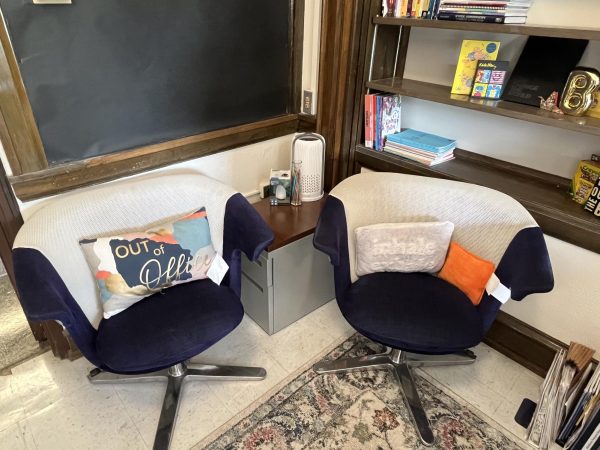
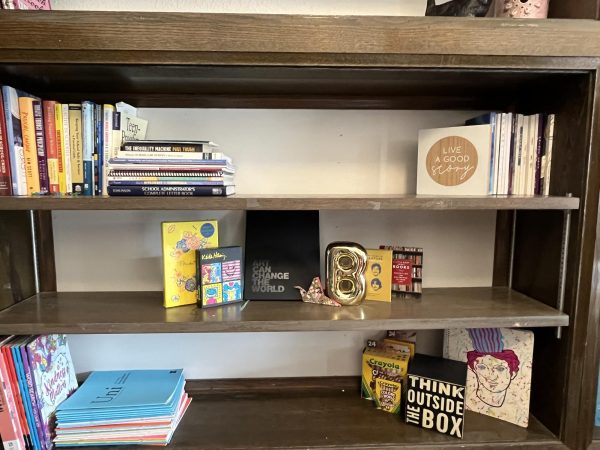
Q. What of Uni’s structure are you most excited about?
A. First of all, the class choices are amazing. I went to a really small school, probably even smaller than Uni, and the options for classes were just not there. So, when I went to college, I had to pave my own way from this very generic line-up of classes. So I really love that classes change, that people can suggest different classes, I love that whole process of being able to curate education to what helps kids grow and fits their interests. I also like that students get to have so much of a say in their own learning. It’s very authentic, very project-based, and kids get to suggest their own clubs and be a part of the decision-making here.
Q. Uni kids really care about their education and the school itself. A big part of Uni’s culture and spirit is Agora Days.
A. Yes. I love the idea of Agora Days. So I’ve never done Agora Days as it is, but I did work at an art space school. And the teachers got to choose an area of art that they felt passionate about — either that they did in their own time or that they wanted to learn about with students — and throughout the week we did art studios led by those teachers. You could do the same one each year, you could do different ones every year, and we had different age levels all mixing together, so it was very similar to the idea of Agora Days.
Q. Speaking of classes, what classes would you want to teach here?
A. I was looking at the course catalog. I’m an English nerd from way back in the day. I love writing, so any of the reading and writing classes really stand out to me. I love the idea of Utopias and Dystopias — that’s something I used to teach in my classes. In the past I’ve taught classes on marketing and programming. On top of that, I also have a love for certain areas of science. One of the things I used to love teaching was a genetics unit with students. I’m obviously not a scientist, that’s not my background, but it was an area of life science I enjoyed teaching, at least in small amounts.
Q. What has struck you as more interesting about Uni culture so far?
A. I want to go back to just how involved students are. One thing that I always encourage students to do is to advocate for themselves and advocate for their education. I want them to be honest about their needs and ask questions. I don’t know what to teach you if you don’t tell me what you need to know — I’m just gonna assume you’re following along. Here, that’s not something I have to do. Kids want to advocate for themselves and each other.
Q. Dr. Radnitzer always went out of his way to know and interact with all of his students. How are you planning to follow in his footsteps?
A. I think being visible is important. I don’t think that I can be a good leader if I don’t know what’s going on. That’s part of the reason why I really love kids being involved. They’re coming in and saying hi and telling me what’s going on. I want to go out and be in the classrooms. There’s going to be times when I’m just going to pop in and be like, “Oh, this looks interesting, I’m going to sit down and be a part of it too.” I think being visible and speaking with students and teachers and asking questions is going to be a really big part of my job. Especially in the beginning. I can’t do my job if I don’t know what’s going on, so I gotta be out there.
Q. How are you going to keep the spirit of Uni – student empowerment, the overall culture – alive in your work here?
A. I think it’s going to happen naturally. Students are already seeking it out. This is what I love about Uni. And I love that’s where most people start when they talk to me — “This is what I love about Uni, this is what is special to me.” I can take those things and be like, “Okay, there’s places we can make shifts and make things better.” I’m gonna come in as the newbie, and not know things, and have to make up my own way, but there’s things that are here and sacred and special to everybody. We’ve heard a lot over the summer from our alumni who still really want to come back and care about this school. They want the kids coming after them, years and decades later, to have an amazing experience.
Q. What are some of your hobbies outside of school?
A. I like to read and write. I like movies. My family will do a lot of outdoor movies and we turn it into a little picnic. I like creating and seeing art. Spending time with my kids; my kids are really important to me. They’re involved in so many things, so getting to bring them into my space and then going to see the things they get to do is really special.
Q. I love what you’ve done with the office. Are you going to keep the candy jar Dr. Radnitzer had here?
A. I do keep candy in my office. I will feel a little put out if people just run in for candy and leave, but I like candy in my office, so it’s usually here.
